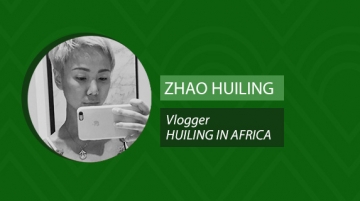
Perceptions over what led to the crisis in Guangzhou back in early April remain starkly divided among Chinese and African stakeholders. Chinese officials vehemently deny that Africans were specifically targeted for additional health COVID-19 health screenings (“epidemic prevention” in the Chinese parlance), forcibly evicted from their residences and subject to discrimination. Authorities insist that foreigners, including Africans, are treated just like everyone else and what happened in Guangzhou was the result of “misunderstanding” as part of a broader effort to contain the spread of the deadly virus in the southern Chinese city.
For the most part, Chinese public opinion seems to agree with the government’s explanation of the situation.
But among Africans, many in China and especially across the continent, they see things very differently.
There’s widespread disbelief about how Chinese authorities can claim that there’s no racism or discrimination in Guangzhou when their social media feeds are filled with videos, photos and countless accounts of the mistreatment of Africans in China. Signs on restaurants, including McDonald’s that explicitly deny entry to black people or videos of African residents being told they have to leave their apartments or hotels cannot simply be dismissed, in their view, by claiming it’s due to a simple misunderstanding.
And those initial images of Africans sleeping on the streets of Guangzhou were very painful to a lot of people and left the impression that what happened there violated a basic sense of dignity and respect.
For many Africans and other observers, what they saw in their social media feeds and on the news was “textbook” discrimination.
So, here we are now where both sides are increasingly talking past one another while each side’s position becomes more polarized.
In this week’s double-edition of the podcast, we attempt to push past the top-line narrative about the Guangzhou crisis and the widening chasm in the China-Africa civil society relationship. First we speak with popular Ghanian vlogger Wode Maya about why this crisis has made him so angry about China’s treatment of Africans and the way that Chinese officials have gone about trying to explain it. Then, we turn to one of China’s leading public opinion experts, Ma Tianjie, founder and editor of the Chublic Opinion blog, to better understand how China perceives immigrant communities like those in Guangzhou and how the government’s actions there are seen by the larger society.
It should go without saying that both Wode Maya and Ma Tianjie don’t represent either Africa or China. No. These are just two individuals’ perspectives who we hope will help add a bit of texture and nuance that is lacking in so much of the current conversation about this contentious issue.
Show Notes:
- Wode Maya: China CAN’T Fool Us Anymore!
- Panda Paw, Dragon Claw: After Guangzhou, 3 things will shape China-Africa “brotherhood” by Ma Tianjie
- Panda Paw, Dragon Claw: Bring back the “Bandung Spirit” in China-Africa relationship by Liu Haifang
- CNN: Beijing faces a diplomatic crisis after reports of mistreatment of Africans in China causes outrage by Jenni Marsh
About Wode Maya and Ma Tianjie:

Berthold Winkler known widely by the brand name Wode Maya is a Ghanaian Freelance Vlogger/YouTuber. Winkler first went to China in 2012 where he studied aeronautical engineering in the northern Shenyang province. He stayed in China for six years where he also started to vlogging and building up his persona on various social media platforms, most notably YouTube and Instagram. Today, Winkler is now back in Ghana where he vlogs on contemporary African issues and travels widely across the continent.

Ma Tianjie is the writer behind Chublic Opinion, a blog offering rich and fascinating insights into Chinese public opinion. Ma surveys the turbulent seas of Chinese social media and news, delving below the surface to try and understand who is shaping Chinese public opinion, how, and why. The Shanghai-born Ma studied English language and literature at Peking University, where he honed the impressive writing talent he displays today. Ma holds a Master’s Degree in environmental policy from American University, Washington D.C. and is now Managing Editor in Beijing for bilingual environmental website China Dialogue, an independent organization dedicated to promoting a common understanding of China’s urgent environmental challenges.










